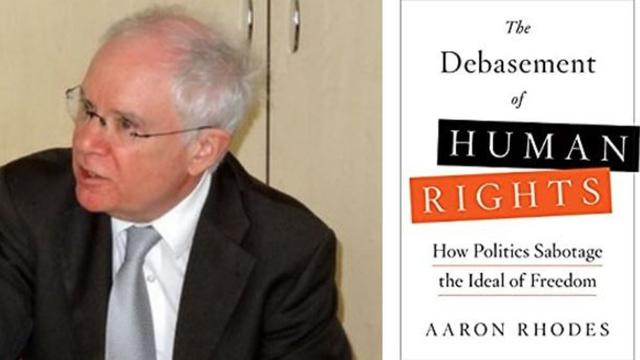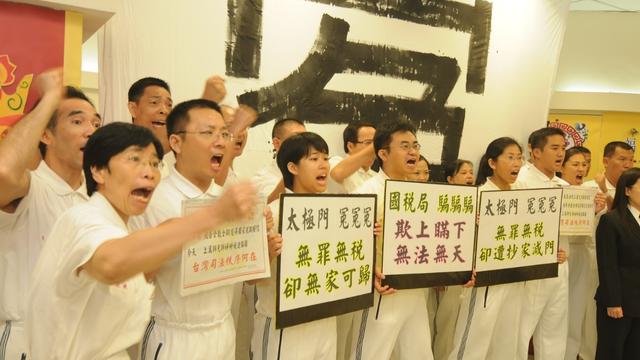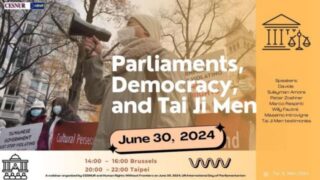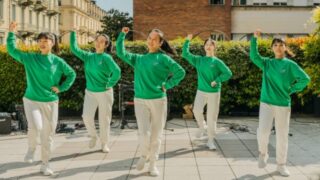Conscience expresses the peculiar, irreducible, and intangible human nature, which makes all persons both similar and diverse. Human rights derive from it.
by Marco Respinti*
*A paper presented at the webinar “Tai Ji Men: Fighting for Human Rights” co-organized by CESNUR and Human Rights Without Frontiers on December 10, 2022, Human Rights Day.


In today’s international debates, there is probably no more uttered an expression than “human rights.” Of course, this is a good thing, but it has also its downside. In fact, it looks like all have their own definitions of, and perspectives on, human rights. Since these definitions and perspectives vary greatly, no real advancement in the defense of human rights is achieved.
Ultimately the contemporary debate on what human rights are seems to be rather confused. There are even lists of human rights that differ vastly from one scholar or activist to another, and from one group to another. Sometimes, human rights are confused with personal wishes, or the feelings of a peculiar group, perhaps even of a lobby. Sometimes, the rights included in a list are not really human rights. Sometimes, rights a certain group has won for itself in history are mistaken for basic human rights, and this is even worse when disputable historical rights are at stake. And sometimes, different anthropologies offer views of humanity so diverse that establishing a common standard in this field may prove an impossible task.
In his 2018 book “The Debasement of Human Rights: How Politics Sabotage the Ideal of Freedom,” international human rights activist and scholar Aaron Rhodes, president of the Forum for Religious Freedom-Europe, suggests that in our times the whole notion of human rights could have been distorted out of misunderstandings, or hijacked for ideological reasons to its perversion, in this case frequently leading to the opposite results of what a genuine defense of human rights should have achieved.
Yet, this field is fundamental. By definition, human rights are unalienable rights that characterize every human being, and every misconception or shortcoming on this topic may easily result in humanitarian disasters.
Let us then have a closer look at human rights. To affirm that some rights intrinsically belong to every human person, humans should share a common notion of humanity. That shared notion has to be based on an objective standard. If it is not so, there is no ground to affirm and defend intrinsic rights for all human beings. That objective standard should by definition be separated from subjectivism, while at the same time recognized and acknowledged and valued by all human individuals. We commonly give the name “nature” to this standard.
Nature is “things as they are”: humanity as it is—given, granted, and preceding every human wish. We find ourselves human and we find others human. We do not build, construct, or engineer them as humans. Just the contrary: humans fear and despise and denounce all attempts at human engineering as an attack on humanity, an aggression on human “nature.”


We can distinguish humans from animals, plants, and rocks because human intelligence is able to recognize that a human nature exists, as distinct from the nature of animals, plants, and rocks, all of them in turn different from each other.
Human nature makes humans recognize humans as humans. Rights intrinsically belonging to human persons, i.e. “human” rights, derive from the human nature. If not, they are not “human” rights. And since the human nature is intangible, so are human rights, i.e. the rights pertaining to each human being because of the peculiar nature of humans. No one has the power to deny or curtail or damage those rights and their corresponding liberties.
A closer look to the subject calls then for a restoration of the authentic notion of human rights. Even if he bears no responsibility for my framing and phrasing of the problem, this seems to be also the key point of the book by Aaron Rhodes.
Some may object that we are just turning around the same problem, with no way out as in a dead end. Our starting point here is that some confusion reigns in the field of human rights. Often scholars and institutions are unable to find an agreement on what human rights are. Calling for a restoration of an authentic notion of human rights sounds like a petition of principle, which continually asks the same question but never finds an answer.
This objection is indeed true, until and unless human beings and international organizations find a rock to which they may anchor the notion of human rights.
Tai Ji Men, a spiritual group that from December 19, 1996, is continually, unjustly, and unreasonably suffering persecution by some corrupt officials and branches of the Taiwanese government, offers us an invaluable tool to find the necessary rock that would free the notion of human rights from any paralyzing subjectivism.


The Tai Ji Men case shows that the core of the teaching of Tai Ji Men (either misunderstood by its persecutors or positively irritating them) is mutual understanding, and universal harmony. Human beings can understand each other, even forgive and love each other, and nations and organizations can live a harmonious life, which does not cancel the problems but helps facing and solving them, only if they embrace the priority of conscience.
Conscience is the key here, as well as the key word of Tai Ji Men’s teaching. Conscience has aptly been the subject of some of our webinars on the Tai Ji Men case. Conscience is in fact the inner and ultimate tribunal of the human person. Conscience is humanity in its deepest meaning. Conscience is the core and soul of humankind. Conscience is the location of the divine sparkle in humans. Conscience is all these elements and characteristics together, because conscience expresses the peculiar, irreducible, and intangible human nature.
Human beings are blessingly unique in their personality. Yet, a tract unifies them in what we all perceive, with a sufficient level of agreement, to be the humankind. The common nature of humans makes them similar to one another, and distinguishes all of them from any other living or non-living being. Within the common humanity that unites all human beings a light is contained: the light of their irreplaceable individuality. Human nature makes humans both similar and diverse.
Human nature is the anchor of human rights that all humans, knowing it or not, are searching—a peculiar feature that makes humans both human and humane, answering for both their commonality and their uniqueness. Tai Ji Men perceives it and teaches it through its insistence on conscience, which to me seems to be a version of the idea expressed centuries ago by Catholic bishop Francis de Sales (1567–1622) and made his motto as a cardinal by John Henry Newman (1801–1890: both have been canonized as saints by the Catholic Church): “cor ad cor loquitur,” meaning “the human heart speaks to the human heart.”
Human rights begin here, and they finish here too: in nature and conscience. This is another reason why the persecution of Tai Ji Men is a great blow struck against all humankind.









